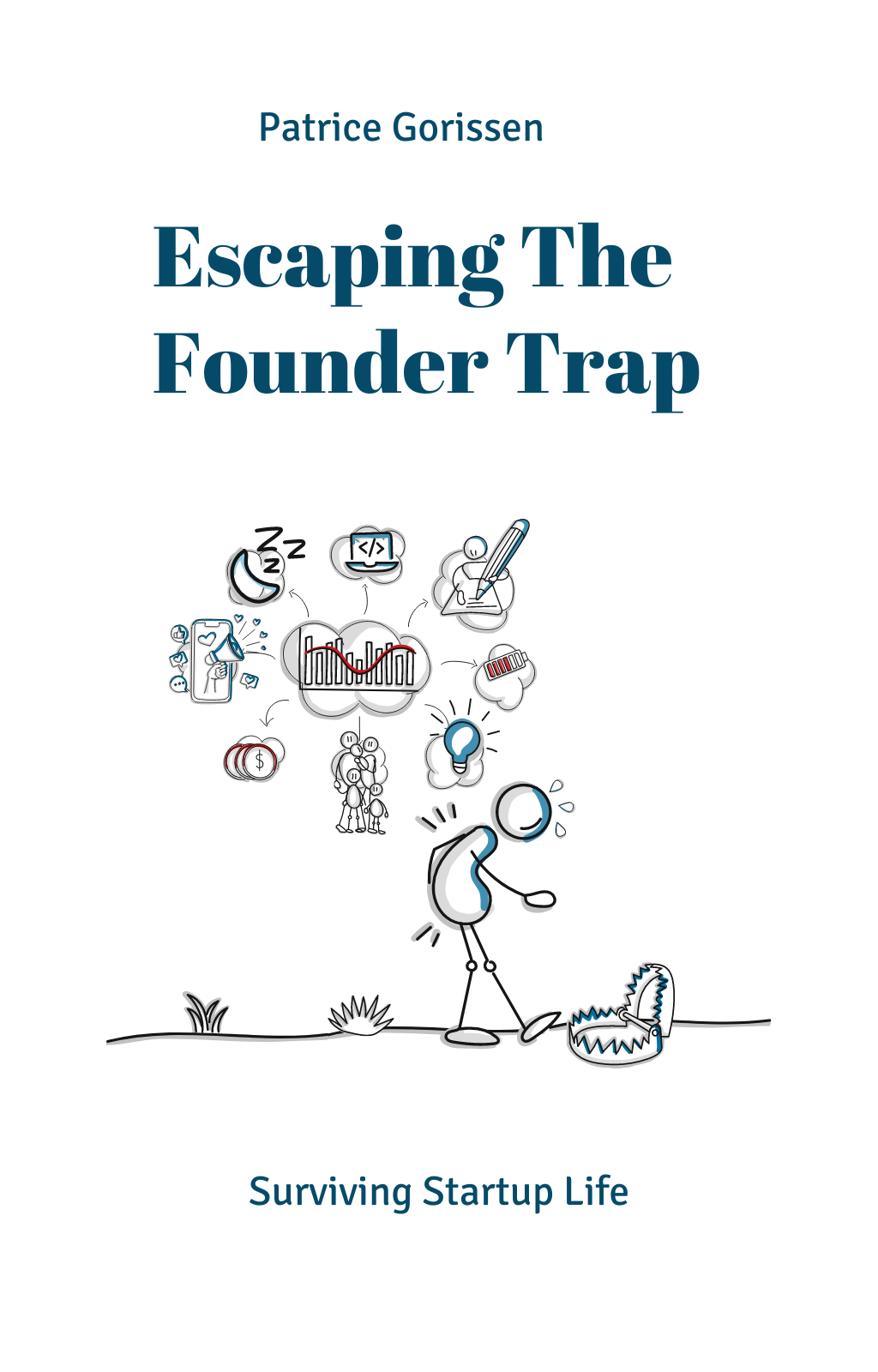Startups come in all sizes, but most of them start really small. And then, hopefully, they will grow as business starts to develop. With that growth, a founder will find himself struggling with new priorities and challenges. Let’s see how the right kind of leadership will help you make the most of that journey.
The founder trap

Instead of logging off for the day and have diner at 7 PM, Jason was logging in for a meeting with one of his remote teams. That morning he got up real early because a prospect he wanted to interview was in yet another time zone. Between those appointments, there were a dozen more, along with plenty of other disruptions keeping him from checking off the numerous items on an endless to-do list. By the time he talked to us, he was kind of getting desperate.
Jason’s example is not one of kind. The life of a founder is often hectic. It starts with a great idea that you work on, maybe on your own or maybe with a co-founder. You put in the time because that’s what it takes. Then you realize that, if you ever want to get the time to work on those other important tasks, you really need to get other people on board. So you start hiring and before you know it, you have multiple teams working for you. Sure, they are speeding things up, finally, things are getting pieced together. But having time for those important things you wanted to work on? That is an illusion.
It’s what we call the founder’s trap: still trying to juggle all the previous roles as well as making time for the new ones that come with growing your organization. While you expect that you will be able to do it all, your fatigue at the end of each day is telling you otherwise. It’s simply too much.
Leadership takes time
It makes sense. Especially in the early days, you will be spending a lot of time explaining stuff to your new team members, if you have any. (If you don’t, then you are doing everything on your own: building, marketing, support). While to you, it is crystal clear what your startup should be about, other people don’t have a clue what’s going on inside your mind. Not yet.
So it takes time to make them understand what you want while also inventing procedures and ways to share information, getting to know each other, forming a team. A lot more time than you probably thought it would take, optimistic and hopeful as you were.
It’s that same optimism that gets most people into trouble when it comes to planning, and for founders, during this phase, it’s especially challenging. The way to do this? Just let go of your expectations and move on.

Accepting your role as a leader
Realize that you have moved from being someone working on an idea to being someone leading an organization. Whatever title you have given yourself, CEO or CTO or whatever, you are now a leader. Your most important job now is to help your team function in the best way possible. And realizing that you need to start prioritizing. There’s simply not enough time to do it all, you have to make choices.
It’s one of the things Jason found out while trying to digest everything already on his plate as his team kept filling it with more and more. Not that their ideas, suggestions, or requests were unreasonable or weird. Quite the contrary: they were really good. So Jason wanted to work on all of them and ended up with a huge pile of work and even more stress. We won’t get into the sleepless nights he had trying to figure out how to fit it all into his busy days. Let’s just say he lost a lot of sleep over it.
That changed the moment he accepted things for what they were and started to make some real choices. Instead of being a ‘developer working with some people trying to make everything work, he became a boss identifying what would optimize team performance.
Personal leadership
Something to become aware of is this: you need to lead not only the people working for you, more than anything you need to lead yourself. This means you will have to stop yourself from instantly responding to all the emails and messages you receive. Instead, you need to halt and take a step back to get a better view. Then, and only then, you can decide what really deserves your attention.
Perhaps even more important, you need to stop yourself from acting on your own ideas, gut feelings, and the urge to solve everyone else’s problems. Instead, hold yourself back and let them learn to solve things themselves. That will not only help your startup business, but it will also help your people to grow as well. Nothing is more valuable than that.

Ebook Escaping the Founder Trap
Free ebook available now.
Learn about the no. 1 reason of startup failure and save yourself from exhaustion.
What do you need to grow?
That brings us to the last item we would like to share with you: remember that you are part of that same team. And like you should encourage your team members and give them room to grow and optimize their performance, you should also encourage yourself.
Take time to figure out what you need to excel, what you need to grow, how to keep yourself engaged and intrinsically motivated. Because your new reality also means that you no longer have time for all those things you loved to do, the things that really fuel your passion. That doesn’t mean you should cancel all those things from your schedule.

If you are really smart (and we hope that you are) you will set aside a little time for those special projects. Amidst all the frenzy, keep cool and decide that some of that time is really yours. Work on something that you really love and that gives you energy. It will be time well spent, trust us!